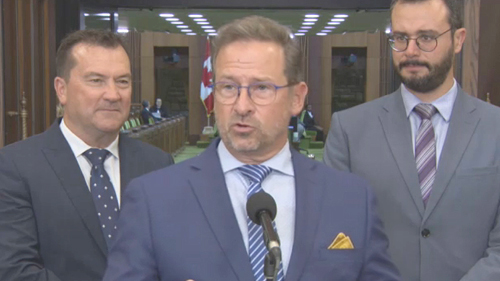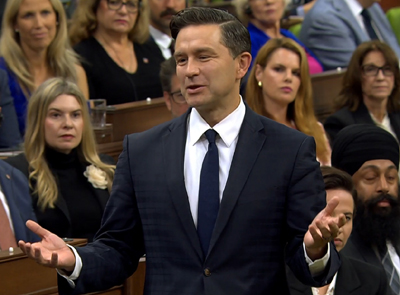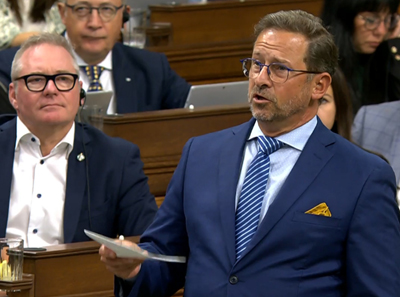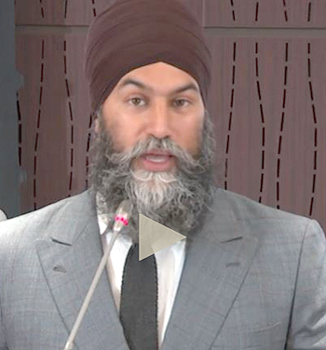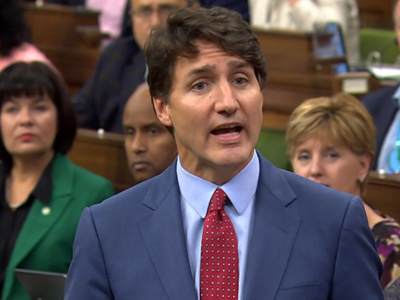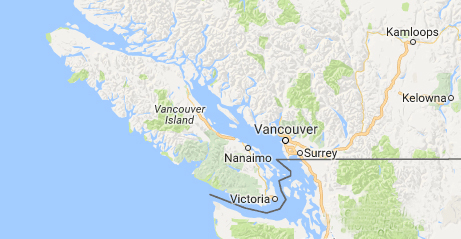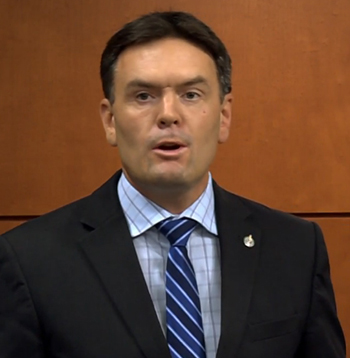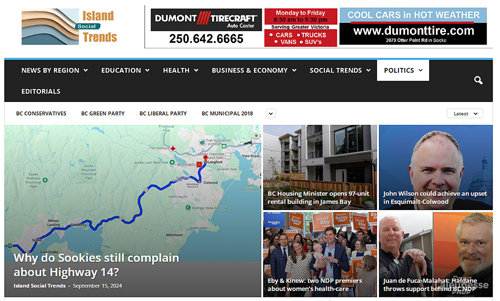Wednesday September 18, 2024 | VICTORIA, BC
Political analysis by Mary P Brooke | Island Social Trends
For many Canadians very likely the back-and-forth antics on the federal political landscape is perplexing at best, perhaps even frustrating.
But in just observing what’s there and what’s being said will take some of the mystery out of it.
This week during Question Period in the House of Commons there were the usual back-and-forth questions and responses between the leaders of the main two parties — terse questions from Conservative Leader Pierre Poilievre and blithe answers from Liberal Prime Minister Justin Trudeau.
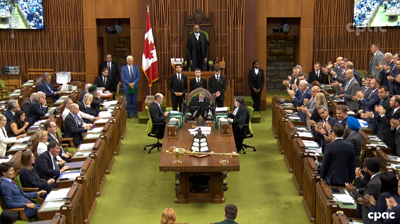
The hot question being lobbed about by mainstream media is when the next federal election might be. Four federal party leaders are weighing in on that.
The simple motion:
Poilievre today announced that next week on the standard House of Commons ‘Opposition Day’ he will present a simple motion.
The simply-worded motion — intended to bring down the current Liberal government — will read: “The House has no confidence in the prime minister and the government
.”
That will be up for debate on Tuesday September 23 before a final vote on Wednesday September 24.
If that motion passes it would trigger a federal election.
But given the House of Commons seat count (Conservatives currently 119) that would require support on that motion from both the Bloc Quebecois (with 33 seats) and the NDP (with 25 seats) in order to defeat the Liberal minority government (154 seats).
Political mechanics:
Weighing-in on CBC’s political analysis TV show Power and Politics yesterday, Bloc Quebecois Leader Yves-François Blanchet told show host David Cochrane:
“I do not believe that after the end of October it would be relevant for anybody to plunge us into an election because it would happen close to Christmas which nobody wants to be responsible of. However, at some point, the NDP will have to vote against the Liberals on something that we do not want either. And then the grenade will blow. When you play with those things, you eventually it does happen. And I believe that in the coming weeks it might happen. An accident is so rapidly happening,” said Blanchet.
And with the gesture of a stage whisper, Blanchet said: “Maybe I shouldn’t tell you but — I believe that the middle of October will be a very hot spot.”
When then? “Because two weeks later will be too late and will have had one month to do things. They will have been at the end of provincial elections,” said Blanchet, referring to how political teams will be focused on provincial elections until the end of October, not to mention some legislation that might get passed (which would include some things the NDP want to see passed such as some preliminary aspects of Pharmacare).
Provincial elections are happening in BC on October 19, New Brunswick on October 21, and in Saskatchewan on October 28.
“So that will be a few days where we will have to be very careful about what is happening,” the Bloc leader said.
The NDP trigger:
It will now pretty much fall on the shoulders of NDP Leader Jagmeet Singh to set the timing of the next federal election.
With the Supply and Confidence Agreement now defunct (that was a mechanism by which the Liberals had the confidence of the NDP on all motions which lasted from March 2022 to August 2024), whichever motion the NDP does not support in the House of Commons will be the action that triggers the next federal election.
In the way of political mud-slinging, the NDP will be ‘blamed’ for triggering the next election. When in more realistic observation, it’s the Conservatives who are hoping for the next election to happen sooner than later. It will be a tricky dance for NDP Leader Jagmeet Singh to pull the NDP through and past that one, and get on with a productive election campaign.
Liberals on a steady path:
The Liberals still seem very confident that as the government since 2015 that they have kept Canada on the rails in most things, including getting through the pandemic without a recession.
But Canadians have good reason to see Liberal failure on housing and affordability. By the time the NDP pressured the Liberals to do a few things in those areas (e.g. CERB during the pandemic, free dental care for children and seniors, and the initialization of directions for Pharmacare with free contraception and diabetes medication fi that does pass this fall) Canadians have had good reason to feel let down by the governing Liberals.
The carbon tax was never properly explained to Canadians for mostly what it is, i.e. an affordability mechanism (80 percent of Canadians get more carbon tax rebate than they pay out in gas tax expenses). Minister of Energy and Natural Resources Jonathan Wilkinson came right out and admitted that in a news interview on CPAC.ca today.
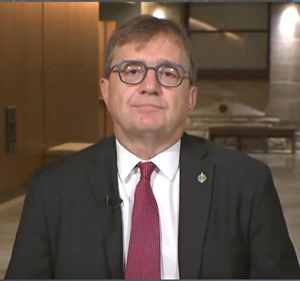
The failure to articulate all these years how the carbon tax works is probably because the Liberals didn’t want to promote the fact that they were levying a tax for cash flow reasons all along. Action against climate action can be taken separately from a consumer-level carbon tax. They could have more easily increased the GST by 1% with less fuss and confusion. The Liberals dug a political hole for themselves on that one.
Local to Vancouver Island:
Six of the seven federal seats on Vancouver Island are held by the NDP.
If a federal election happens in November this year, it will give a chance for the NDP to gracefully retire long-time NDP MP Randall Garrison. Considered a strong locally-known candidate, NDP candidate Sooke Mayor Maja Tait could well end up in Ottawa by the new year.
A Fall 2024 federal election would also be an opportunity for NDP candidate Colin Plant (a Saanich municipal councilor and currently chair of the Capital Region District board) to take a shot at winning Saanich-Gulf Islands which has been long-held by Green MP Elizabeth May.
Considered strong to win again would be Alistair MacGregor for the NDP in Cowichan-Malahat-Langford, Laurel Collins in Victoria, Lisa Marie Barron in Nanaimo-Ladysmith, and Gord Johns in Courtenay-Alberni. Rachel Blaney is not seeking re-election in North Island-Powell River.
Meanwhile, there is a strong undercurrent of Conservative momentum on Vancouver Island, which points to a tough fight for the NDP whenever the upcoming election does happen. Poilievre has spent a lot of time in Vancouver Island, often landing in Nanaimo for media exposure.
===== RELATED:
- By-elections: NDP wins Winnipeg, Bloc takes Montreal (September 16, 2024)
- MPs heading back to Ottawa for fall sitting (September 12, 2024)
- Federal political landscape keeps shifting, think twice for Election 2025 (September 7, 2024)
- NEWS SECTIONS: CANADIAN FEDERAL ELECTION 2025 | BC PROVINCIAL ELECTION 2024 | POLITICS | FEDERAL NDP


